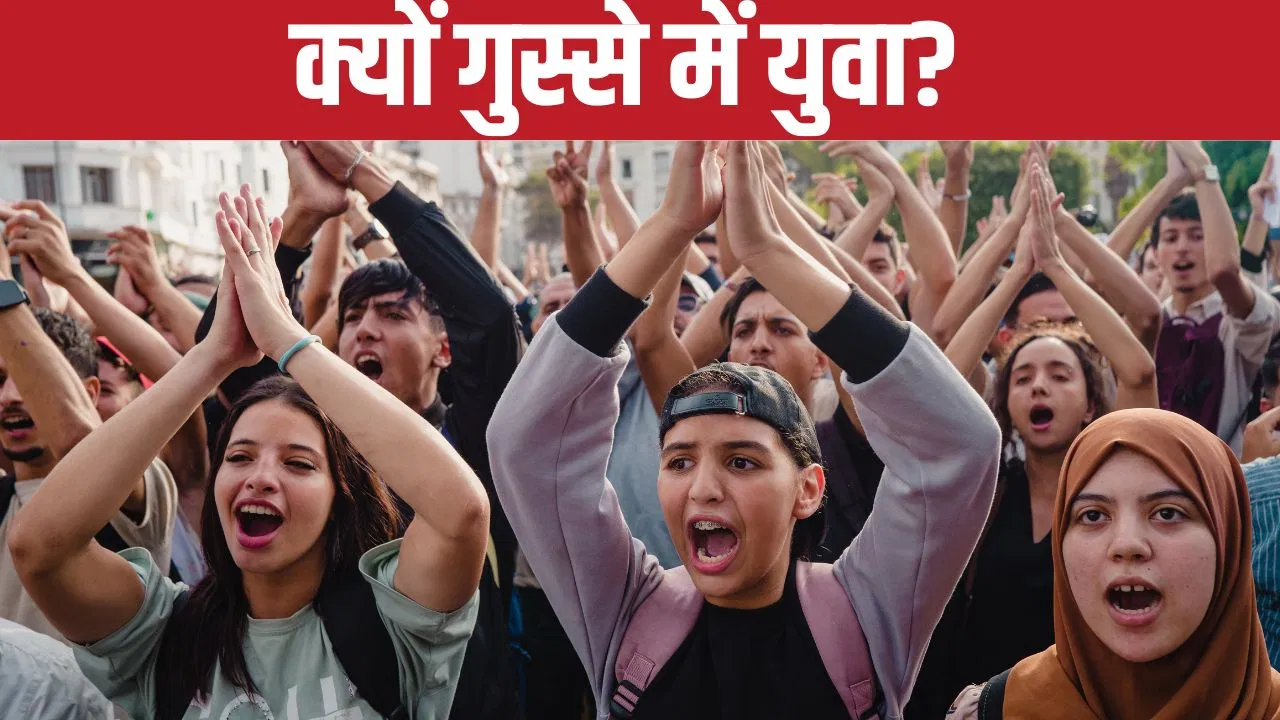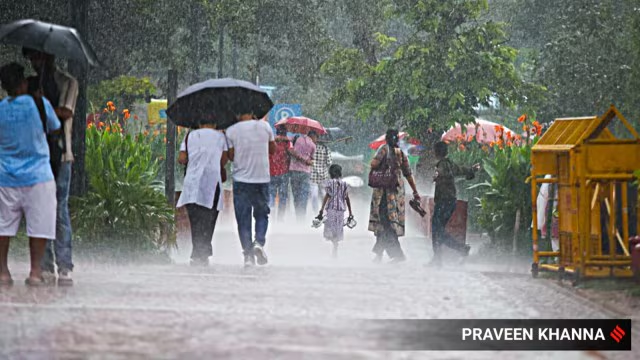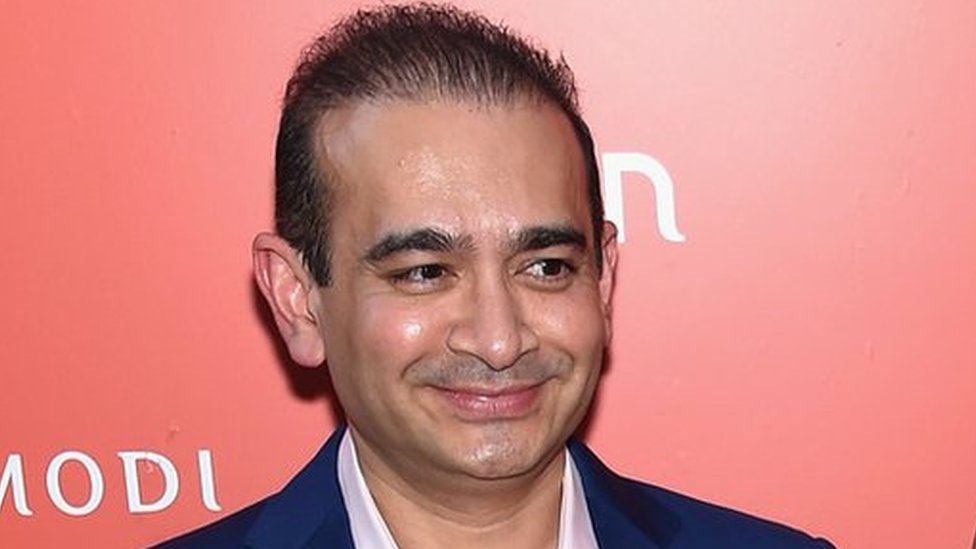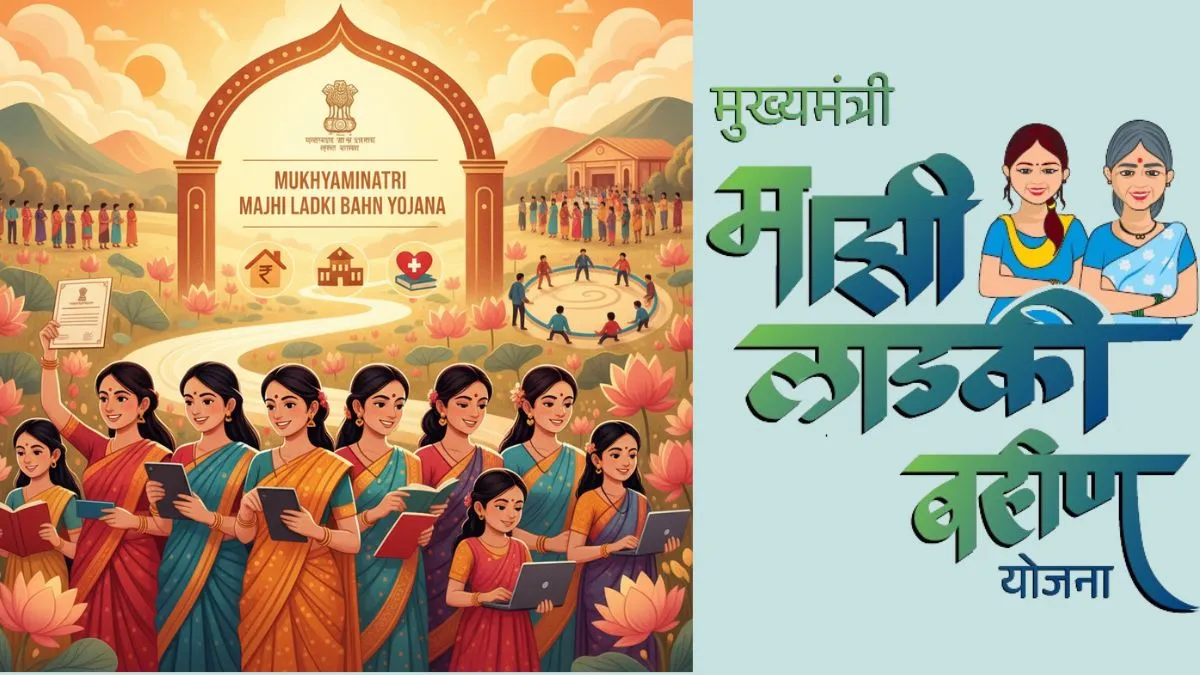After Nepal, Morocco has now become the latest country where Generation Z has taken to the streets, voicing anger against corruption, unemployment, and inadequate public services. The growing wave of protests has intensified into a direct call for the dismissal of the government, echoing similar demands previously seen in Nepal.
The youth-led group GenZ 212 has emerged as the driving force behind the demonstrations. In a statement addressed to King Mohammed VI, the group demanded the dissolution of the current government, accusing it of failing to safeguard citizens’ constitutional rights and neglecting urgent social issues.
Rising Anger Across the Country
Since the last week of September, Moroccan youth have been organizing widespread demonstrations. What started as small-scale gatherings quickly turned into a nationwide movement, highlighting the frustrations of an entire generation. Protesters have called for accountability, better governance, and tangible solutions to the challenges of daily life.
Tragically, clashes with police during protests earlier this week left three people dead. While organizers insist that the demonstrations should remain peaceful, tensions escalated after security forces cracked down on gatherings, fueling anger rather than calming it.
Key Demands: Reform and Accountability
At the heart of the protests are demands for stronger public healthcare, improved education, job creation, and an end to systemic corruption. GenZ 212 has not only called for the government’s dismissal but also urged the judiciary to launch independent trials against those responsible for corruption.
Prime Minister Aziz Akhannouch has attempted to calm the unrest, stating that the government is ready for dialogue and committed to addressing the concerns of the youth. However, many Moroccans remain skeptical, pointing to years of unfulfilled promises and deep-rooted inequality.
Admissions of Government Failure
In parliament, Health Minister Amin Tahrouri openly admitted that despite reforms, the healthcare sector has fallen short of expectations. Similarly, Housing Minister Fatima Zahra Mansouri conceded that the government has failed to deliver on key promises, saying, “If we had succeeded, we would not be hearing these voices on the streets and social media.”
Such rare admissions of failure have only added fuel to the protests, with many young Moroccans feeling vindicated in their criticism.
The Emergence of GenZ 212
Interestingly, little is known about the founders of GenZ 212. The group describes itself as a platform for discussion on issues such as healthcare, education, and corruption. What makes it powerful is its ability to tap into frustrations that have been simmering for years due to neglect of public services.
Morocco faces deep socio-economic disparities, high youth unemployment, and widespread perceptions of corruption. These conditions created fertile ground for a youth movement to rise, uniting thousands under a single banner.
Public Services in Crisis
Among the most urgent demands is reform in public health and education. While private healthcare services are better resourced, public hospitals remain overcrowded and underfunded. Even after the introduction of universal health coverage in 2021, poor Moroccans still struggle to access quality treatment.
The education sector faces similar challenges. Public schools suffer from overcrowding and limited investment, leaving many students without adequate resources. Government reports confirm that lack of education is one of the leading drivers of poverty. Though Morocco has managed to reduce its poverty rate from around 12% in 2014 to 6.8% in 2024, young people argue that inequality persists due to uneven access to basic services.
The World Cup Debate
Another point of contention has been Morocco’s investment in massive infrastructure projects tied to the 2030 FIFA World Cup, which the country will co-host with Spain and Portugal. While GenZ 212 has not formally opposed the event, many protesters question the government’s priorities.
Chants such as “We need hospitals, not stadiums” have become common. On social platforms like Discord, activists argued that the same dedication shown to building stadiums should be applied to constructing hospitals and schools.
Currently, Morocco is renovating six stadiums and building a new $1.7 billion facility by 2028. Alongside this, the government is investing heavily in projects such as railway modernization ($9 billion), 5G internet ($7 billion), and airport expansions ($3.7 billion). For many citizens, these projects highlight a government more focused on international prestige than on solving pressing domestic issues.
Conclusion
The protests in Morocco mark a turning point in the country’s political landscape, showcasing the determination of Gen-Z to demand systemic change. By challenging corruption, weak public services, and misplaced priorities, the movement reflects a broader generational shift sweeping across nations.
Whether these demonstrations will force tangible reforms or fade into another cycle of promises remains to be seen. But one thing is certain: Morocco’s youth have found their voice, and they are no longer willing to remain silent.




